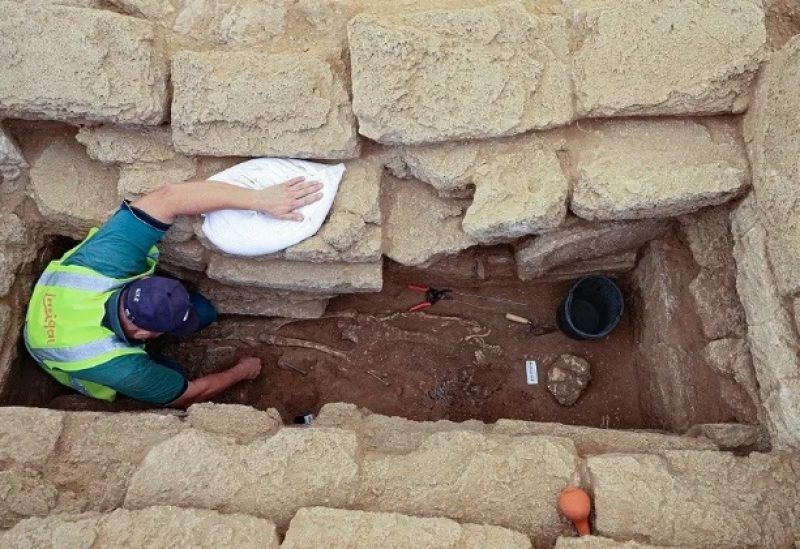
Gaza
Four Roman tombs dating back 2,000 years have been discovered in the Gaza Strip, a Palestinian archaeologist said Saturday, bemoaning a lack of resources that has delayed excavations in the besieged territory.
“With the discovery of these four tombs, the total number of tombs in this Roman cemetery, dating from the period between the first century BC and the second century AD, now stands at 134 tombs,” said archaeologist Fadel Al-Otol.
The discovery marks the first complete Roman necropolis, or cemetery, fully unearthed in Gaza, he told AFP.
“Fragments of pottery and metal pieces used in funeral rituals” have been found in the resting places, added Otol.
The cemetery is notable for its pyramid-shaped tombs. Inside them, a team of technicians, working under the direction of Otol, undertake restoration work using rudimentary tools.
“Two lead coffins, one adorned with clusters of grapes and the other with dolphins swimming in water, were recently discovered on the site,” noted the Palestinian archaeologist, who lamented a lack of financial resources.
The funding for the excavation and restoration work comes from the British Council’s Fund for the Protection of Culture.
Impoverished Gaza, home to around 2.3 million Palestinians, is under a tight land, air and sea blockade imposed by Israel, whose defense ministry controls all crossings except Rafah, which is controlled by Egypt.
The territory has been ruled by Hamas since 2007.